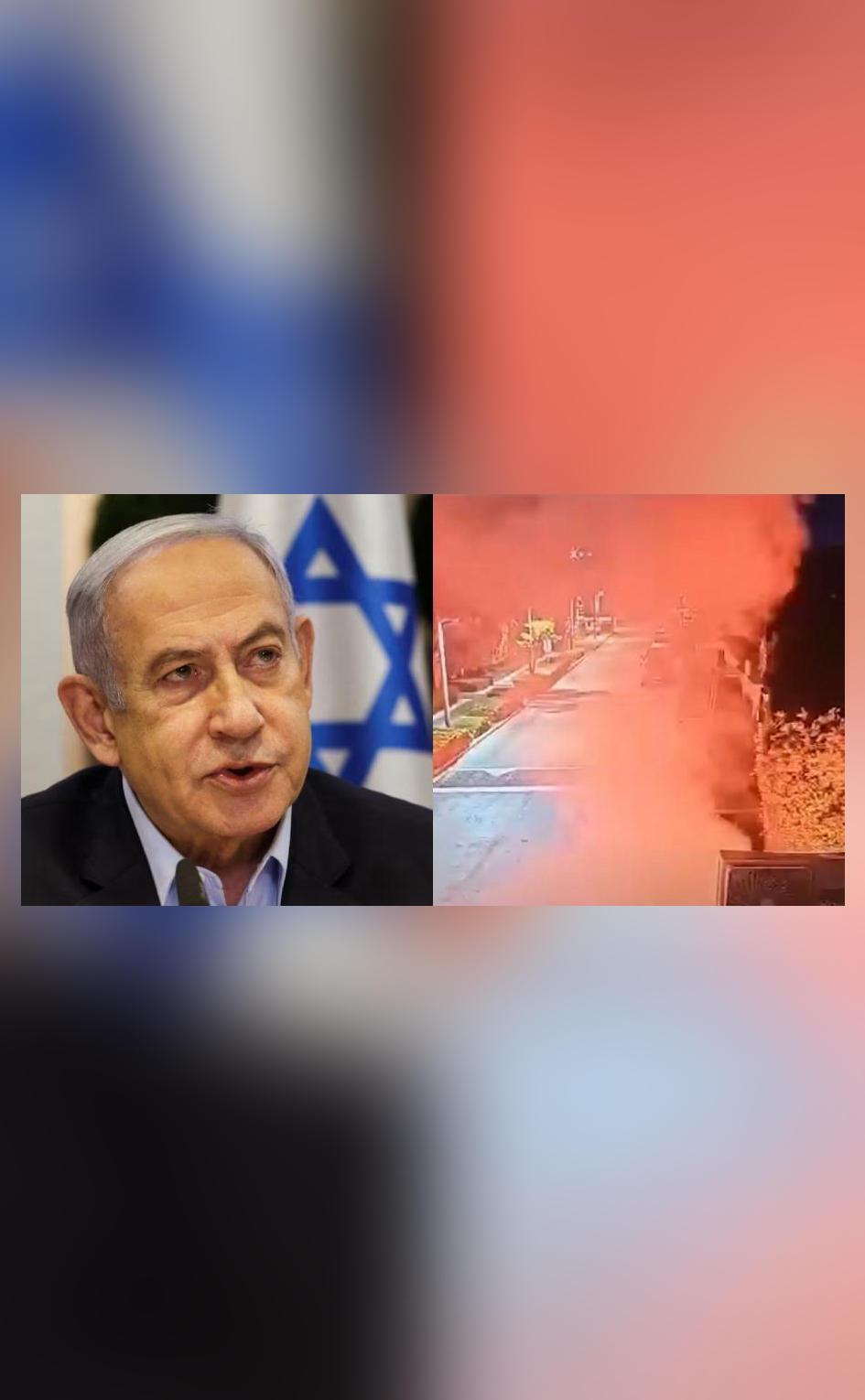 |
|
The recent attack on Israeli Prime Minister Benjamin Netanyahu's Caesarea residence highlights the escalating tensions and political polarization within the country. Three individuals have been apprehended and charged with launching flare bombs at the residence. While Netanyahu was not present at the time of the incident, the attack underscores a concerning trend of escalating aggression targeting high-profile political figures. The accused are known activists actively participating in ongoing protests against Netanyahu's government and policies. The use of flare bombs, while not resulting in physical harm in this instance, represents a significant escalation from previous demonstrations and raises concerns about the potential for future, more dangerous actions. The incident compels a closer examination of the underlying causes of the protests and the effectiveness of current security measures.
The strategic choice of the dunes near a beach as the launching point for the flare bombs suggests a degree of planning and premeditation. This indicates that the attack was not a spontaneous act of violence but rather a calculated attempt to make a statement. The location also suggests a desire to maximize media attention and public impact. The accessibility of the beach area and its proximity to Netanyahu's residence raises questions about the effectiveness of security protocols designed to protect high-profile individuals from such attacks. The authorities will undoubtedly review security procedures to prevent similar incidents in the future. This necessitates a comprehensive analysis of existing security measures, including personnel deployment, surveillance technologies, and perimeter protection strategies.
The attack on Netanyahu's residence follows a similar incident last month involving a drone attack allegedly perpetrated by Hezbollah. This raises concerns about the potential for further attacks and the interconnectedness of various factions involved in the ongoing conflicts within the region. The comparison between the two attacks – one employing low-tech flare bombs and the other utilizing a sophisticated drone – highlights the diverse range of methods employed by individuals and groups seeking to express their grievances or inflict damage. While the flare bomb attack did not result in significant damage or injuries, its symbolic significance is profound. It represents a direct challenge to the authority of the Prime Minister and serves as a potent visual manifestation of the escalating political unrest in Israel. Understanding the motivations of the protesters and the broader context of the political climate is crucial for analyzing the significance of this event.
The arrest of three individuals provides an opportunity to delve deeper into the socio-political dynamics fueling the protests. Investigative efforts should focus not only on the immediate perpetrators but also on the wider networks and organizations that may have supported or facilitated the attack. This includes examining funding sources, communication channels, and the overall organizational structure of the protest movement. Such an investigation will be crucial in identifying potential patterns, preventing future attacks, and addressing the underlying causes of the unrest. The ensuing legal proceedings will provide a platform for understanding the motivations of the accused, the extent of their involvement, and the potential involvement of others. The court's judgment will serve as a precedent for future cases involving similar acts of political protest and violence, further shaping the legal landscape surrounding political demonstrations in Israel.
The incident raises crucial questions about freedom of expression, the limits of protest, and the role of security forces in maintaining order while upholding democratic rights. Balancing the need for robust security measures to protect high-profile individuals with the right of citizens to engage in peaceful protest presents a significant challenge for the Israeli government. This incident will likely trigger a renewed debate on the appropriate response to political dissent and the implementation of security measures that effectively protect government officials while respecting civil liberties. Striking a balance between these two priorities will be essential in de-escalating tensions and preventing future violent incidents. The long-term consequences of this attack extend beyond the immediate security concerns, impacting political stability, social cohesion, and international relations.
Beyond immediate security measures, addressing the underlying socio-economic and political grievances fueling the protests is paramount. Genuine dialogue and constructive engagement with the protesters’ concerns are crucial for long-term stability and the prevention of future violent acts. The government needs to show a willingness to listen to and address the concerns of the population, engaging in constructive dialogue rather than relying solely on security measures to control dissent. Ignoring or suppressing these concerns will only exacerbate tensions and potentially lead to further acts of violence. A multifaceted approach that combines robust security measures with genuine political engagement is necessary to address the root causes of this unrest and create a more peaceful and stable environment for all citizens.
